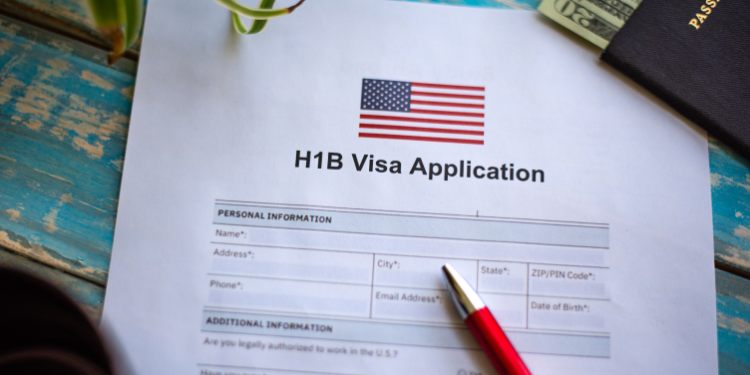There are several things to consider before you move abroad. These include Visa and residency,
Language, Banking, and Cost of Living. Read on to discover more.
Visa and Residency
Getting a Visa or obtaining residency in a foreign country is essential before relocating to another country. Before traveling abroad, it’s best to research the legal requirements in your chosen country and make sure you have everything necessary for your visa or residency application. In many cases, you will need to have your documents translated and notarized.
Obtaining residency or work visa can also make it easier for you to work in a country. A resident visa is temporary, allowing you to own property and work. A permanent residency visa is much more permanent and requires that you have a clean criminal record and can maintain your financial independence. Citizenship is a more permanent option, but it is more expensive and time-consuming. It is generally not possible to work in the country without a residency or work visa.
Language
While moving to a foreign country is an exciting adventure, you need to be prepared. Learning the language and adapting to the culture can help you feel more at home and minimize the potential for social faux pas. Learning the language is a great way to get started, and you can find free online resources to learn a new language.
While speaking the language of the country you are going to is not a requirement for a visa to visit it is often a requirement to stay on a permanent basis. If you are intending to work in another country speaking the local language is vital. For example, if you are moving to the UK or USA and cannot speak English you will struggle to not only find work but also undertake work.
You’ll also need to sign contracts in a foreign language and may want to hire a translation service to make sure your documents are properly translated. If language is not your first language, you may want to enrol in intensive language courses before you move abroad.
Cost of Living
Before moving to a new country, you should consider the cost of living. The US, for example, has a wide range in terms of cost of living, and it’s big cities are generally more expensive than its smaller suburbs. There are many ways to save money on housing costs before you move. The key is to compare cities and neighborhoods with each other to determine which is more affordable.
Your money may also go further if you are moving from a High Cost of living country to a Low Cost of living country but will not go as far when moving the other way around. You need to bear in mind that you will have some upfront costs when you arrive in your new country and what foreign currency you have may not go far. When it comes to housing, costs of rentals and even prices of properties to buy can be daunting. You may have to lower your expectations regarding the size or location of your property if you want to have peace of mind. People who have moved location and lived in different countries find it beneficial to stop comparing their new currency with their previous currency when it comes to determining what things really cost.
Career Prospects
If you’re thinking of relocating to another country to advance your career, you may be wondering how your current qualifications will translate. The international job market has seen ups and downs in recent years, and the number of jobs available can vary at any particular time. However, you shouldn’t let this discourage you. There are several steps you can take to increase your prospects of finding employment in a new country, LinkedIn is a good place to start.
Before relocating abroad, consider your goals and your salary requirements. Generally speaking, relocating abroad opens up career opportunities because skills and services are transferable globally. For example, the hospitality industry is open to people from all over the world. However, before relocating, ensure that the salary you’ll be earning will allow you to sustain your lifestyle and save money. To make the most of your overseas relocation, take the time to learn the language of the country you’re moving to.
If you’re currently unemployed, relocating abroad to work may be your best option. Many countries offer good opportunities for people to work. You can save money and make valuable contacts abroad, boosting your career prospects and international network. There are also plenty of opportunities available to those who have experience in a particular industry. However, it’s important to take into account that working abroad can be challenging. You should also consider the logistics involved in relocating. This includes finding new employment and accommodation, arranging documentation, and liaising with potential employers.
Education Options for Children
If you’re moving abroad with children, you’ll need to think carefully about your educational options. You’ll want to choose a school that offers an excellent educational curriculum as well as a warm welcoming environment, and fosters values you hope to impart to your children.
Pre-schoolers will likely be affected the most by the unfamiliar body language and new surroundings. School-aged children will face challenges at school and in integrating with their peers. Teenagers may experience a higher degree of instability, due to the fact that they’re still developing their identity and close relationships.
Choosing the right school can be a daunting experience. Some children thrive in a new environment, while others struggle with the cultural differences and language. There are many educational options available to expatriate children, including home schooling, local schools, and international schools. Finding the right one for your child will depend on their temperament and what’s available in the area. The best way to make an educated decision is to talk to expats who’ve moved to the country and are familiar with the available options.
Banking
Before you can do most things in any country you need a bank account. Some countries make this easier than others, but you need to have certain things in place before you can open a bank account. Most banks in most countries require you to have a physical address, a tax identification number, and proof of income. You will need to research this fully before you arrive overseas.
If you are wanting to send money home from, say, the UK to India, you need to find a bank where this is both easy and affordable. Some banks have apps or functionality that allow a person to find the optimal balance of a good exchange rate, low fees, easy to use and fast transfer of funds.
Taxes
Before you move to a new country, you need to make sure that you understand tax laws, particularly those regarding residency and income. As an expat, you may find that the tax laws in a new country are far different from those in your home country. You may have to adjust to a different tax system and tax filing deadlines. In the U.K. for example, tax years begin in April, while those in Germany must file an annual tax return by the end of July.
Health Insurance
Another important factor is the healthcare system in your new country. You should be familiar with the regulations and laws in your destination country, as well as the availability of different types of health insurance. Remember, health is wealth and it’s very important to ensure that you’re properly covered.
In a developing country, you may not have access to the healthcare system that is available in your home country. If you’re planning to relocate to a new country, you may need to purchase Health Insurance before you go.
One of the best ways to get the coverage that you need while abroad is to take out an international health insurance plan. There are many types of international health insurance available, so make sure to understand all your options before moving. Compare these policies, their advantages, disadvantages, and consult a medical professional in the country where you’re moving. You’ll be much better protected with a foreign health insurance policy than with a local one.
Climate
When you move to another country the climate may be very different to what you are used to. For instance, those who move from the Southern Hemisphere to the Northern Hemisphere will have seasons turned on their heads. Climatic change can be difficult to adjust and for some people, it is the main compelling reason to move back to where they came from. Make sure you have a close look at the climate of where you are going. While you may want to move to the UK to earn pounds you may find the cooler, wetter weather and the shorter day hard to cope with.
Family Friends and Network
Finally, one of the most important things to consider when moving to a new country is your friends and family. Leaving friends and family behind is hard and if you have aging parents or sick loved ones it may be a struggle to part. While leaving loved ones behind is tough, having someone on the other side is equally important. Going to a new place where you are a stranger and know no one is extremely hard. Having family members or people you know waiting for you can make adjusting to your new home easier. Friends and family are important, and you may only realize this when you are alone in a foreign country.



















